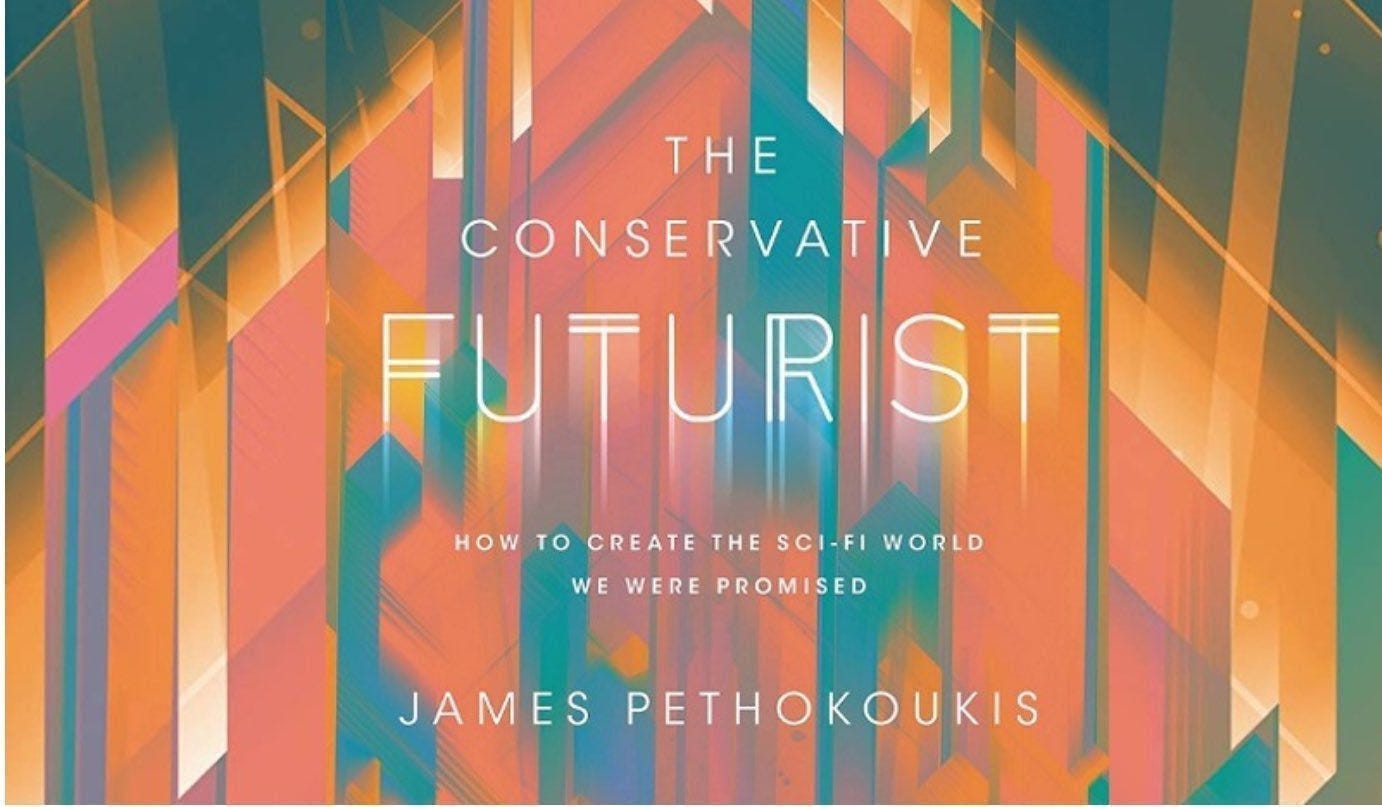👶📉 3 long-shot ways to solve the global baby bust
God, AI, and space offer better odds than government nudges and subsidies
My fellow pro-growth/progress/abundance Up Wingers,
I have an op-ed in The Washington Post today, “Falling birth rates don’t have to be a crisis. Just look at Japan,” that makes two primary points. First, natalist policies have flopped. Governments cannot bribe citizens into having babies when cultural attitudes have shifted decisively toward smaller families.
Second, labor scarcity need not spell doom. Japan's shrinking workforce has triggered a virtuous cycle: tighter labor markets, rising wages, and greater productivity-enhancing business investment. The upshot: Stop subsidizing babies and start maximizing output per worker through more high-skill immigration (especially in the case of the US), labor mobility, and technological investment and adoption — especially AI and robotics.
Japan's experience suggests a fundamental truth about demographic change, as I write: “Like the nation’s proverbial willow in the wind, better go with the flow rather than fighting it.”
Not that parental preferences are immutable. University of Pennsylvania economist Jesús Fernández-Villaverde thinks policy — such as boosting marriage rates through housing affordability and improving male jobs skills — can help at the margins, slowing fertility decline a bit to help avoid a hard demographic landing. (Governments might want to hurry. Fernández-Villaverde’s analysis sees global Peak People hitting in the 2050s.)
But bigger changes would require a massive cultural shift: I mention three possible long-shot catalysts in the WaPo piece, which I want to expand upon here from the newspaper version:
Religious revival. Observant communities remain demographic outliers in a childless age. Mormons, Orthodox Jews, and devout Christians consistently post above-replacement fertility. Why? Deeply rooted norms such as a spiritual framing of parenthood as purpose, not preference. As secular societies grow wealthier and lonelier, some Gen Zers are rediscovering faith, or at least its social scaffolding. Demographer Nick Eberstadt, an AEI colleague, notes that the key predictor of fertility isn’t income or incentives, but how many children people want. Religion works not by bribery, but by shaping desire itself — a feat culture warriors and bureaucrats alike struggle to replicate.
AI assist. If artificial intelligence delivers the productivity gains its boosters promise, it could do more than boost GDP — it might help revive family life. As workweeks shorten and incomes rise, time-rich households may find room for more children. Robot nannies and AI tutors could lower the practical burdens of parenting, especially for dual-income couples. Historical precedent exists: Recent research suggests the historical positive relationship between wealth and fertility, which reversed during the Industrial Revolution, is re-emerging in rich countries. Wealthy Americans are already having more children as the ultimate high-end consumption good. Indeed, fertility among the ultra-wealthy is already rising, suggesting that abundance can nudge preferences.
Final frontier. Elon Musk fans will love this one. Space, unlike subsidies, offers a reason to reproduce. Off-world settlements would demand labor-intensive development: constructing habitats, establishing agriculture, building infrastructure from scratch. In the Palladium essay, “The Megaproject Economy,” Marko Jukic argues that demographic decline stems from civilizational purposelessness. Space reverses that logic. It demands sacrifice, cooperation, and children. The cultural script shifts from consumption to construction. Science fiction, from The Expanse to Vernor Vinge, imagines bustling solar civilizations built on precisely this ethos. Humanity would be fruitful, multiply, and go where none have gone before.
Each plotline offers a wonkish eschatology: imaginative but largely unfalsifiable. They may yet shape our future. But they offer little guidance to today’s policymakers grappling with demographic decline. For that, Japan provides a more grounded lesson. Despite so-so immigration and ever fewer babies, its performance of late hints a shrinking population might not necessarily mire a country in a forever funk.
As for natalism, let me finish with this from Eberstadt:
The history of our species is a history of continuous and incessant population replacement — with some lineages proliferating and others ending altogether. Today’s global population is mainly comprised of families whose ancestors accounted for only a small fraction of humanity just a millennium ago. It seems reasonable to guess the same will be true a millennium from now.
The late great Max Singer — co-founder with Herman Kahn of the Hudson Institute — argued that over the long haul, the world would be primarily composed of groups — people and cultures — with a favorable disposition toward family and childbearing, or more specifically to their descendants.
But Max assumed this process would be spontaneous and self-directed — he did not speculate about the desirability, much less feasibility, of attempting to direct it through conscious action, such as state policies, civil norms, or deliberate efforts to alter civil norms.
It seems to me there is potentially great danger in attempting to engineer higher birth rates through changing cultural attitudes. Such interventions could easily prove highly invasive, and might result in a veritable playground of adverse and unintended consequences.
Accepting such risks in the name of stabilizing or increasing world population would imply that births are a matter of state, not just the parents in question. We have seen where such thinking leads in our own time: Look only at the nightmare the CCP has wrought in China.
On sale everywhere: The Conservative Futurist: How To Create the Sci-Fi World We Were Promised
Micro Reads
▶ Economics
▶ Business
AI is turning the ad business upside down - Economist
▶ Policy/Politics
What’s making some countries daydream about nukes again? - Wapo Opinion
▶ AI/Digital
Tyler Cowen: Does AI Make Us Stupid? - Free Press
▶ Biotech/Health
Do longevity drugs work? - Economist
▶ Clean Energy/Climate
This Energy Embargo Has Been Going On for a Decade - Bberg Opinion
▶ Up Wing/Down Wing
What Public Schools Could Learn From Fred Smith - WSJ Opinion
Knockout Mouse - Asterisk
▶ Substacks/Newsletters
The economic consequences of a war with Iran - Noahpinion
A Lifeline for Clean Firm Power - Breakthrough Journal




The drop in fertility is the great filter of the 21st century. Those subcultures that can avoid the nihilism and materialism of our current zeitgeist will inherit the earth. Those that cannot will die out but not before doing their best to infect the subcultures that are thriving. They call it the woke mind virus for a reason after all and virus is a very good metaphor as they literally cannot reproduce it without a host .... all those wide eyed kids who enter the education system and social media to be spiritually destroyed by it.
While there is a biological urge to reproduce, I think the susceptibility to continue one's culture also has at least some heritability. Those whose culture values children as in inherent good will continue and thrive and those cultures which dont will die out.
if we don't want to have kids because of early-school start-times, forced busing, school-uniforms, foreign-language, and signing up for the draft to get college-aid--how would finding God or working less as an adult help?